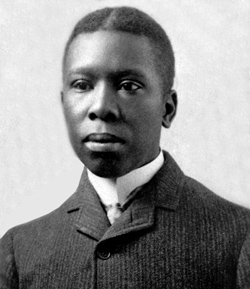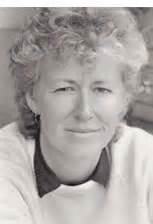Top 253 Myriad Quotes & Sayings - Page 5
Explore popular Myriad quotes.
Last updated on April 16, 2025.
We wear the mask that grins and lies, It hides our cheeks and shades our eyes,- - This debt we pay to human guile; With torn and bleeding hearts we smile And mouth with myriad subtleties. Why should the world be otherwise, In counting all our tears and sighs? Nay, let them only see thus, while We wear the mask. We smile, but, O great Christ, our cries To thee from tortured souls arise. We sing, but oh the clay is vile Beneath our feet, and long the mile; But let the world dream otherwise, We wear the mask!
If you see the intersection of time and space, you experience complete freedom of being. This state of existence is completely beyond any idea of time, space, or being. In that liberated state you can see fundamental truth and the phenomenal world simultaneously. That is called Buddha's world. That is the place where all sentient beings exist, so you can stand up there and see all beings, myriad beings. Then you know very clearly, through your own emotional and intellectual understanding, how all beings exist.
What is God-given is called nature; to follow nature is called Tao (the Way); to cultivate the way is called culture. Before joy, anger, sadness and happiness are expressed, they are called the inner self; when they are expressed to the proper degree, they are called harmony. The inner self is the correct foundation of the world, and the harmony is the illustrious Way. When a man has achieved the inner self and harmony, the heaven and earth are orderly and the myriad of things are nourished and grow thereby.
(Speaking of the Cistercian monks) A grim fraternity, passing grim lives in that sweet spot, that God had made so bright! Strange that Nature's voices all around them--the soft singing of the waters, the wisperings of the river grass, the music of the rushing wind--should not have taught them a truer meaning of life than this. They listened there, through the long days, in silence, waiting for a voice from heaven; and all day long and through the solemn night it spoke to them in myriad tones, and they heard it not.
Or ever the knightly years were gone, with the old world to the grave, I was a King in Babylon and you were a Christian Slave. I saw, I took, I cast you by, I bent and broke your pride... And a myriad suns have set and shone, since then upon the grave, Decreed by the King in Babylon, to her that had been his slave. The pride I trampled is now my scathe, for it tramples me again. The old remnant lasts like death for you love, yet you refrain. I break my heart on your hard unfaith, and I break my heart in vain.
My Family and Other Saints echoes Gerald Durrell's classic memoir, My Family and Other Animals, not only in its title, but in its wonderful humor and lyrical prose. Like Durrell, Kirin Narayan takes the reader to a fascinating world far from our own, and brings to life its myriad sights, sounds and smells, while revealing the profound cultural beliefs of its people. India is just the most complex character among a cast of characters-family members, gurus, hippies, and neighbors-all of whom I now count as old friends.
February. Get ink, shed tears. Write of it, sob your heart out, sing, While torrential slush that roars Burns in the blackness of the spring. Go hire a buggy. For six grivnas, Race through the noice of bells and wheels To where the ink and all you grieving Are muffled when the rainshower falls. To where, like pears burnt black as charcoal, A myriad rooks, plucked from the trees, Fall down into the puddles, hurl Dry sadness deep into the eyes. Below, the wet black earth shows through, With sudden cries the wind is pitted, The more haphazard, the more true The poetry that sobs its heart out.
A murmuring, fateful, giant voice, out of the earth and sky, Voice of a mighty dying tree in the Redwood forest dense.... [T]he wood-spirits came from their haunts of a thousand years, to join the refrain; But in my soul I plainly heard. Murmuring out of its myriad leaves, Down from its lofty top, rising two hundred feet high, Out of its stalwart trunk and limbs - out of its foot-thick bark, That chant of the seasons and time - chant, not of the past only, but of the future.
What a contrast between the stern and desolate poetry of Ossian, and that of Chaucer, and even of Shakespeare and Milton, much more of Dryden, and Pope, and Gray! Our summer of English poetry, like the Greek and Latin before it, seems well advanced towards its fall, and laden with the fruit and foliage of the season, with bright autumnal tints, but soon the winter will scatter its myriad clustering and shading leaves, and leave only a few desolate and fibrous boughs to sustain the snow and rime, and creak in the blasts of age.
Reading has always brought me pure joy. I read to encounter new worlds and new ways of looking at the world. I read to enlarge my horizons, to gain wisdom, to experience beauty, to understand myself better, and for the pure wonderment of it all. I read and marvel over how writers use language in ways I never thought of. I read for company, and for escape. Because I am incurably interested in the lives of other people, both friends and strangers, I read to meet myriad folks and enter their lives- for me, a way of vanquishing the “otherness” we all experience.
For the moment, the jazz is playing; there is no melody, just notes, a myriad tiny tremors. The notes know no rest, an inflexibleorder gives birth to them then destroys them, without ever leaving them the chance to recuperate and exist for themselves.... I would like to hole them back, but I know that, if I succeeded in stooping one, there would only remain in may hand a corrupt and languishing sound. I must accept their death; I must even want that death: I know of few more bitter or intense impressions.
That's an interesting paradox to think about. Make it legal and it's no good. Why? Because as long as it's illegal the people who come in do not qualify for welfare, they don't qualify for social security, they don't qualify for the other myriad of benefits that we pour out from our left pocket to our right pocket. So long as they don't qualify they migrate to jobs. They take jobs that most residents of this country are unwilling to take. They provide employers with the kind of workers that they cannot get. They're hard workers, they're good workers, and they are clearly better off.












